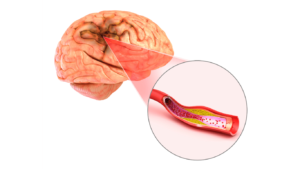In moments of stress, our body's innate alarm system goes off, setting into motion a series of physiological events designed to protect and prepare us for what's to come. Central to this emergency response are two key players: cortisol and adrenaline. These stress hormones surge through our body, priming us for action and ensuring we're ready to face imminent threats. But what exactly happens when these hormones flood our system, and how do they impact our health in the long run?
Understanding the Fight or Flight Response
The fight or flight response is a reflex hardwired into our biology, designed to enable a rapid reaction to threatening situations. Triggered by perceived danger, this mechanism releases a flood of adrenaline and cortisol into our bloodstream. These hormones act to sharpen our senses, quicken our heartbeat, and pump more blood to our muscles, preparing us either to stand and confront the threat or to take flight and escape. This evolutionary adaptation was crucial for the survival of early humans, who frequently encountered immediate physical dangers.
In modern times, the triggers for this response have evolved to include everyday stressors such as work pressures, financial worries, or interpersonal conflicts. Despite the difference in stimuli, our physiological reaction remains remarkably consistent, demonstrating the enduring nature of the fight or flight response in our contemporary lives. It serves as a testament to our body's readiness to respond to danger, whether the threats are physical or psychological.
However, the distinction between these types of threats and our body's undiscriminating reaction to stress underscores the importance of understanding and managing our stress response appropriately in today's world.
The Role of Adrenaline in Stress

Adrenaline, often known as epinephrine, is a critical hormone that prepares your body to face stress head-on. Upon its release, it initiates a series of rapid physiological changes: your heartbeat accelerates, your blood pressure rises, and your muscles receive a surge of energy. This is all part of your body's immediate reaction to stress, equipping you with the necessary resources for a quick response. The hormone also expands the airways, allowing for increased oxygen flow to vital organs, thus enhancing physical and cognitive capabilities during stressful episodes.
This boost can sharpen focus and improve reaction times, critical for navigating through high-pressure situations. However, when adrenaline levels remain elevated due to ongoing stress, it can lead to a range of discomforting symptoms. These may include persistent feelings of anxiety, an inability to relax, and difficulties with sleep. Such constant vigilance can strain the body, highlighting the need for strategies to manage stress and mitigate the impact of adrenaline on our well-being.
The Impact of Cortisol on Your Body

Cortisol plays a multifaceted role in our body's response to stress, acting on several systems to prime the body for immediate survival. By elevating blood sugar levels and enhancing the brain's glucose usage, cortisol ensures that our body has the necessary energy to confront or flee from danger. Additionally, it temporarily suppresses functions that are less critical in a crisis, such as the digestive and reproductive systems, and processes related to growth and immunity.
While this prioritization is beneficial in short-term, high-stress situations, chronic elevation of cortisol can lead to detrimental health outcomes. Continuous high levels of cortisol can disrupt nearly all your body's processes. This includes contributing to the development of obesity, insulin resistance, cardiovascular diseases, and may impair cognitive functions over time.
Furthermore, the suppression of the immune system by prolonged cortisol exposure can make individuals more susceptible to infections and slow down the healing process. The delicate balance maintained by cortisol in times of stress underscores its significant but potentially harmful influence on our health if not regulated properly.
The Consequences of Prolonged Stress Responses
Chronic activation of the body's stress response system can have far-reaching implications for health and well-being. Extended periods of heightened cortisol and adrenaline levels can lay the groundwork for various physical and psychological conditions. Among these, heart disease emerges as a notable risk, with the stress-induced increase in blood pressure and heart rate contributing to wear and tear on the cardiovascular system.
Similarly, the mental health landscape can be significantly altered by prolonged stress, increasing the likelihood of encountering anxiety disorders and depression. These conditions not only affect an individual's quality of life but can also complicate the management of other health issues.
Moreover, the body's persistent inflammatory state, driven by chronic stress, acts as a catalyst for a range of diseases, including the potential for autoimmune disorders and a higher risk of cancer. The underpinning of such health challenges highlights the critical need for effective stress management strategies.
By addressing the root causes of stress and employing methods to alleviate its impact, individuals can safeguard their health against the adverse effects of prolonged cortisol and adrenaline exposure, thus breaking the cycle of chronic stress and its potentially debilitating consequences.
Managing Stress to Protect Your Health
Incorporating stress management techniques into daily life can be a game-changer for both your physical and mental well-being. Engaging in mindfulness meditation can provide a sense of calm and perspective, reducing the overwhelming effects of stress.
Similarly, making physical activity a regular part of your routine not only boosts your mood through the release of endorphins but also helps in dissipating the energy mobilized by stress hormones.
Deep-breathing exercises are another simple yet effective tool; they slow down the heart rate and help in lowering blood pressure, countering the immediate effects of cortisol and adrenaline. Building and maintaining a support network can also play a crucial role in managing stress. Having people to share your concerns with can provide emotional relief and practical solutions to stressful situations.
For those who find their stress levels unmanageable, seeking professional help can be a critical step towards reclaiming control over your health. Learning to pinpoint what sets off your stress and cultivating healthy ways to cope with these triggers can significantly diminish the negative impact stress has on your body, allowing for a more balanced and health-oriented approach to life's challenges.
The Importance of Recognizing Stress Signals
Identifying the initial indicators of stress is crucial for heading off the full-blown activation of our body's fight or flight mechanism. Common early warning signs encompass an uptick in heart rate, quicker breathing patterns, the onset of perspiration, and a noticeable increase in anxious feelings.
These symptoms serve as our body's early alarm system, signaling that it's time to implement strategies to soothe the nervous system and ward off the exhaustive impacts of extended adrenaline and cortisol release. Simple, immediate actions can profoundly affect our ability to manage stress in the moment. Techniques such as engaging in deep, controlled breathing, momentarily distancing oneself from the stress-inducing environment, or conducting a brief mindfulness practice can act as effective tools in this regard.
These methods are aimed at calming the physiological arousal that accompanies stress, helping to prevent a cascade of reactions that could lead to more severe health implications if these stress hormones remain elevated for too long. By staying attuned to these early signs and responding with appropriate stress-reduction tactics, individuals can better manage their stress levels and avert the potential for more significant health concerns associated with chronic stress hormone exposure.
Conclusion: Embracing Stress Management for Well-being
Navigating the intricate dance of managing adrenaline and cortisol levels is critical for maintaining our health amidst the ebbs and flows of stress. These hormones, while fundamental to our survival mechanisms, can become double-edged swords when their activation becomes a constant in our lives.
The journey towards wellness hinges on our ability to discern the fine line between necessary vigilance and overwhelming stress. It's about striking a balance where we harness the beneficial aspects of these stress responses without allowing them to tip us into a state of chronic stress, which can erode our health over time.
By cultivating a toolkit of stress management strategies, we position ourselves to lead more harmonious lives. This means adopting practices that not only counteract the immediate effects of stress hormones but also build our resilience against future stressors. Whether it's through mindfulness, physical activity, or fostering connections with others, these strategies offer a way to dial down the stress response, promoting a sense of well-being that permeates all aspects of our lives. In embracing these practices, we not only enhance our capacity to manage stress but also fortify our defenses against the array of health challenges that prolonged stress can bring.






